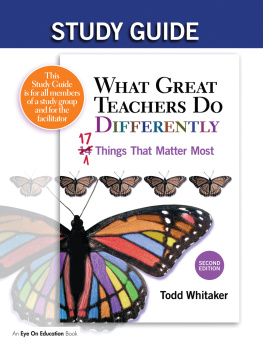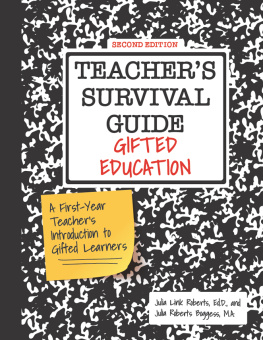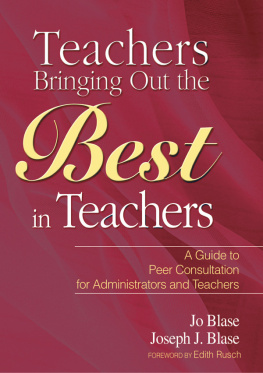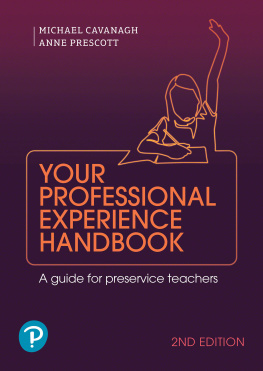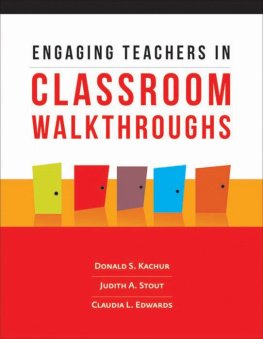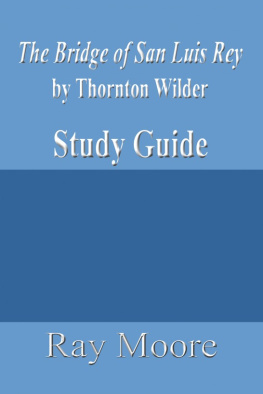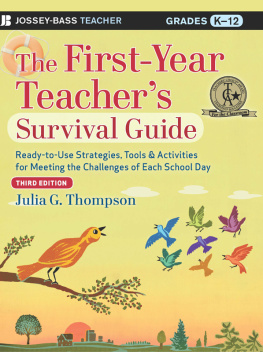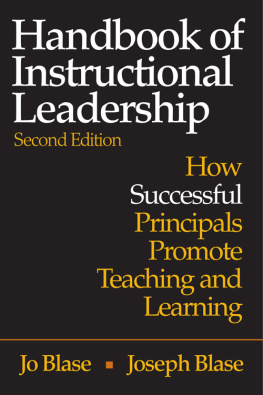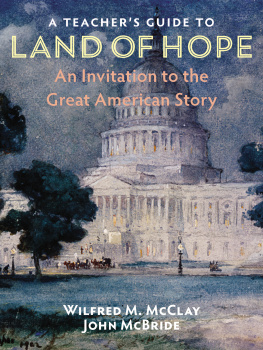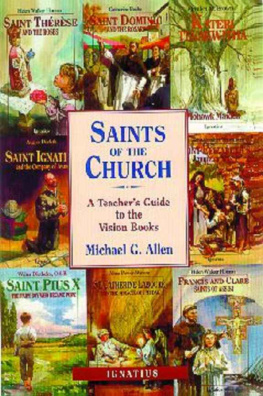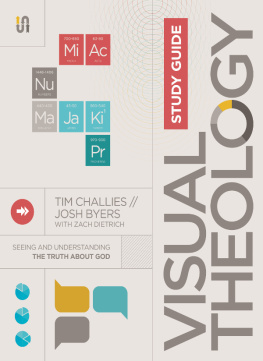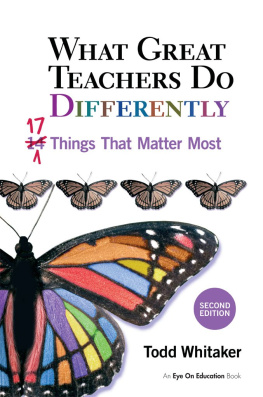
First published 2012 by Eye On Education
Published 2013 by Routledge
711 Third Avenue, New York, NY 10017, USA
2 Park Square, Milton Park, Abingdon, Oxon OX14 4RN
Routledge is an imprint of the Taylor & Francis Group, an informa business
Copyright 2012 Taylor & Francis
All rights reserved. No part of this book may be reprinted or reproduced or utilised in any form or by any electronic, mechanical, or other means, now known or hereafter invented, including photocopying and recording, or in any information storage or retrieval system, without permission in writing from the publishers.
Notices
No responsibility is assumed by the publisher for any injury and/or damage to persons or property as a matter of products liability, negligence or otherwise, or from any use of operation of any methods, products, instructions or ideas contained in the material herein.
Practitioners and researchers must always rely on their own experience and knowledge in evaluating and using any information, methods, compounds, or experiments described herein. In using such information or methods they should be mindful of their own safety and the safety of others, including parties for whom they have a professional responsibility.
Product or corporate names may be trademarks or registered trademarks, and are used only for identification and explanation without intent to infringe.
ISBN: 978-1-596-67205-5 (pbk)
ISBN: 978-1-317-92587-3 (ePub)
Cover Designer: Dave Strauss, 3FoldDesign
This Study Guide is a tool to accompany the second edition of What Great Teachers Do Differently: Seventeen Things That Matter Most by Todd Whitaker. A practical resource for educators examining what great teachers do that sets them apart from others, this book focuses on the beliefs, behaviors, attitudes, and commitments that positively impact teaching and learning in our classrooms and our schools.
Note to Facilitators: If you are conducting a book study group, seminar, or professional development event, this Study Guide also serves as a road map to help you organize your sessions and work with your group. It provides assistance to staff developers, principals, team leaders, college professors, and other educational leaders who are working with teachers as they develop their professional skills.
What Great Teachers Do Differently: Seventeen Things That Matter Most is a slender, but powerful book. It is not a book comprised of hard scientific data, detailed assessment rubrics, or esoteric theories. Instead, it is a book that clearly, concisely, and accurately informs teachers what our most effective teachers do on a daily basis. Put simply, this text is a book that teachers can put to useimmediately. This guide, therefore, is written in a way that allows the participant not only to read and understand essential concepts, but also to take these back into their classrooms and schools and put them to immediate use.
Each part of this book corresponds to one or two chapters of What Great Teachers Do Differently. To help you plan and organize your study sessions, each part is divided into the following five sections:
Key Concepts: These summaries of the key points of each chapter in the book will help you review and focus your thoughts.
Discussion Questions: These questions and ideas help you learn more about yourself and your colleagues and will aid constructive conversation in the study group, workshop, or classroom setting.
Journal Prompt: Based on the specific contents of each chapter, the journal prompts help you reflect, work through essential issues, and record what you have learned in writing.
Group Activities: These activities allow you to explore concepts and ideas further by interacting with others in your study group, workshop, or classroom.
Application: This section provides strategies for applying what you have learned in your school.
The authors would like to thank Jeff Zoul for his assistance in the preparation of these materials.
Great teachers do not use sarcasm, yell at kids, or argue with students in front of their peers.
Educators can always learn from observing what great teachers do. Eliminating inappropriate choices does not help as much as identifying good ideas used by successful educators.
All that is truly needed to improve education is for all teachers to be like our very best teachers.
Who we are as teachers and what we do as teachers are more important than what we know. Teachers must self-reflect on who they are and what they must do in order to improve their practice.
There are really only two ways to improve any school: get better teachers and improve the teachers already there.
No program inherently leads to school improvement. It is the people who implement sound programs who determine the success of the school. Programs are never the solution and they are never the problem.
What matters most is not what teachers do (including programs such as whole language, assertive discipline, or open classrooms), but how appropriately and effectively they do it.
1. What is the most important idea communicated in these two chapters? How would you implement this idea in your classroom?
2. Why should we look at what great teachers do?
3. In what ways is looking at ineffective teachers pointless? On the other hand, why must we also study less effective teachers and schools when determining what constitutes great teachers and schools?
4. What is it that determinesin the eyes of parents and studentswhether or not a school is great?
5. Are open classrooms, back to basics, whole language, and assertive discipline programs inherently good or bad? Explain.
6. When considering whether or not to adopt a school program change, what should stand as the primary criterion?
7. In the phrase poor lecturers classroom, which of these three words captures the problem? How is this single example illustrative of the people versus programs concept?
Think of a program that has been implemented in recent years at your school or a school with which you are familiar. Which teachers adapted to the change of programs, embracing the new idea and making it work? Did any teachers resist the change? Was the program ultimately deemed a success? What determined whether or not it was successful?
In small groups of three to five, ask participants to consider the following two points: (1) Some teachers have twenty years of teaching experience; others who have taught for twenty years have one year of experience that they have repeated twenty times. (2) Students want to know how much you care before they care how much you know. On of the text, there is a description of a teacher who taught the same grade effectively for thirty-eight years. Have participants use the scenarios above and discuss how they apply to this particular teacher. Have groups create a list with three categories: what she knew as a teacher, who she was as a teacher, and what she did as a teacher. Based on the description of this effective veteran teacher, ask participants to brainstorm possible outcomes within each category that would likely have applied to her and her knowledge, passion, and practices as an educator. Participants should be prepared to share these lists with the entire group.

